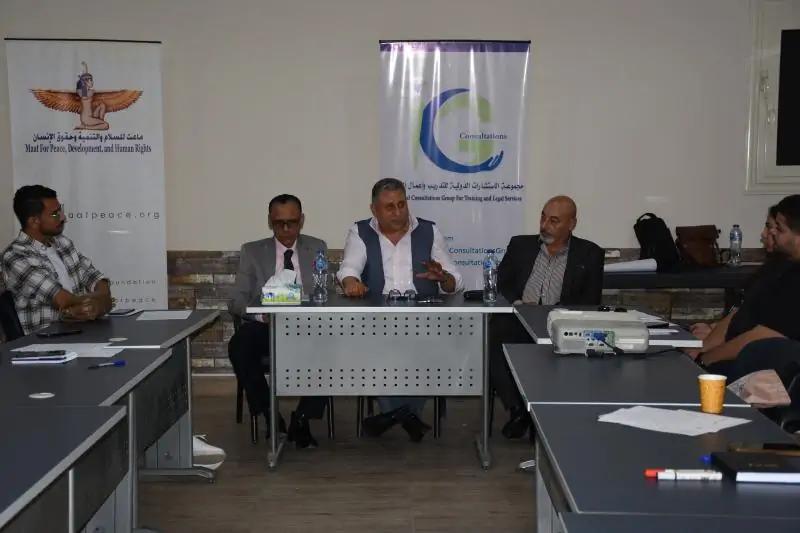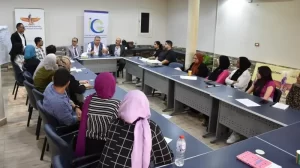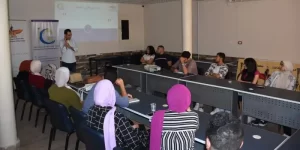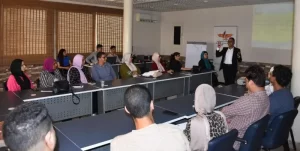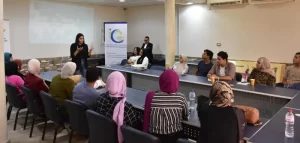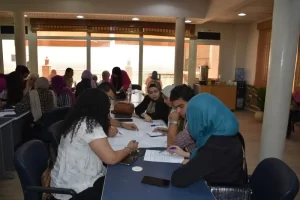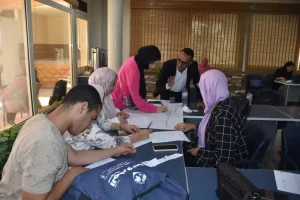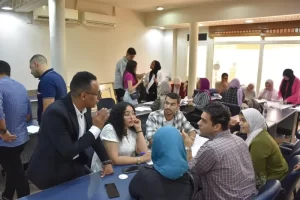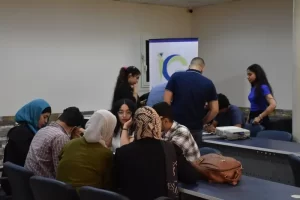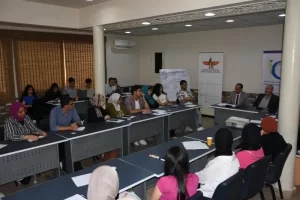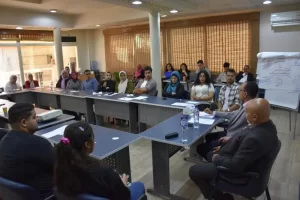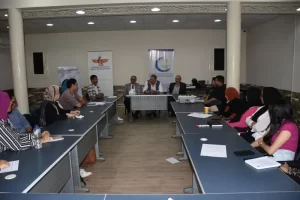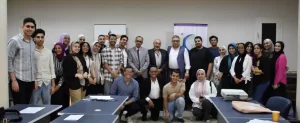Maat for Peace, Development and Human Rights, in cooperation with International Consulting Group for Training and Legal Work, organized a training workshop for youth titled “International Humanitarian Law Principles and Rules and Human Rights Violations Documentation.” This workshop was held at the headquarters of International Consulting Group and was attended by more than 30 young men and women, including university students and graduates from various governorates. The training aimed to provide participants with a strong understanding of the nature, sources, and rules of IHL, as well as the methods for documenting serious violations of international humanitarian law and war crimes that occur during armed conflicts.
During the first session, Abdul Rahman Pasha, Director of Programs and Projects at Maat, discussed the essence of international humanitarian law, its definition, and the history of its codification. He also explained the difference between international humanitarian law and international human rights law.
Baka Radwan, Director of International Consulting and Legal Works Group, stated that this collaboration between Maat and Consulting Group paves the way for disseminating the rules and principles of international humanitarian law. She emphasized the urgent need to spread the culture of international humanitarian law and international human rights law among young people from different backgrounds.
Muhammad Mukhtar, Director of International Human Law Unit at Maat, discussed the sources of international humanitarian law, including treaties that criminalize the targeting of civilians and civilian objects during armed conflicts, such as the four Geneva Conventions of 1949, as well as conventions and treaties that regulate the use and exploitation of various means of warfare. He also covered the role of customary law, case law, and legal doctrines.
Dr. Walid Barham, an expert in the field of international humanitarian law, discussed the legal differences between international and non-international armed conflicts. He also covered the principles governing the means and methods of war, the scope of application of international humanitarian law, and the mechanisms for applying the law. Additionally, he addressed the current armed conflict situations.
In the closing session, Ayman Okeil, human rights expert and Chairman of Maat, stressed the importance of raising youth awareness in the field of international humanitarian law, particularly in light of the current global situation where many parties to armed conflicts are ignoring the rules of international humanitarian law, leading to commission of grave violations that may be described as crimes of genocide under the Rome Statute. He also addressed the role of private security companies in fueling armed conflicts worldwide and impact of illicit arms transfers on conflicts and civil wars. Okeil also highlighted the continued efforts of Maat in supporting and strengthening various cooperation paths aimed at spreading culture of human rights and international humanitarian law among young people and marginalized groups.
